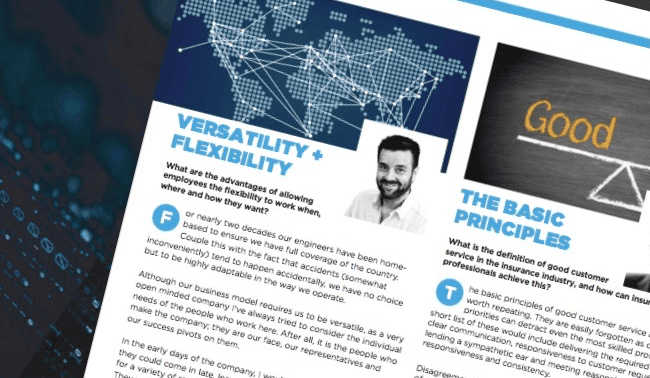For nearly two decades our engineers have been home-based to ensure we have full coverage of the country. Couple this with the fact that accidents (somewhat inconveniently) tend to happen accidentally and we have no choice but to be highly adaptable in the way we operate.
Although our business model requires us to be versatile, as a very open minded company I’ve always tried to consider the individual needs of the people who work here. After all it is the people who make a company; they are our face, our representatives & our success pivots on them.
The Start of Laird Assessors
In the early days of the company I would be asked by staff if they could come in late, leave early, take an extra hour for lunch for a variety of reasons; family, health, social, religious reasons; they would make it up the next day or next week, so I didn’t see it as a problem; if anything allowing this flexibility made them happier as they could fulfil whatever they need to which in turn made them a happier employee & typically more likely to give that little bit extra when needed.
Having worked on my own for the first couple of years, I tended to work in this way in any case, so why not extend this flexibility to them?
Modern Technology
Mobile phones offered the first glimpse of flexible working but then the rise of the internet allowed us to reconsider our traditional model. We saw the net as just a much longer cable in our network, so what difference did it make where someone was based provided we could communicate effectively & manipulate or transfer data between one another?
Flexibility
Everyone has their own story outside work, so we took the decision that, provide certain boxes were ticked, we would allow our teams to work whenever they want; some start at 6am but then are finished by 2pm, whilst other rock up at 10am & but leave at 6pm. The added advantage is that we can give greater flexibility to our clients.
Provided our service is excellent, our reports are high quality & the clients’ expectations are met (but preferably exceeded), then we take the view that when, where & (within reason) how our teams manage this is up to them. In return we have a highly motivated, engaged & generally happy work force.
Reproduced from an original article by Nik Ellis in Modern Law Magazine

